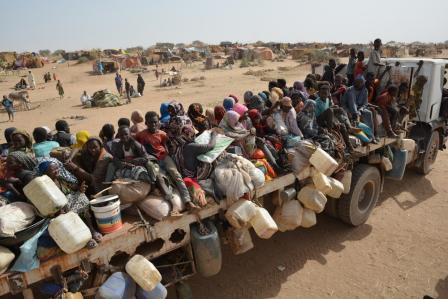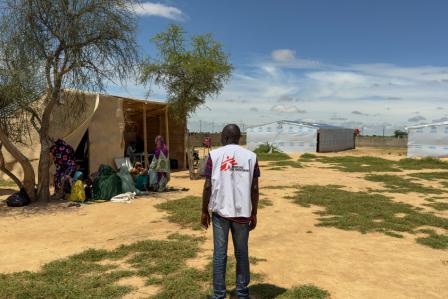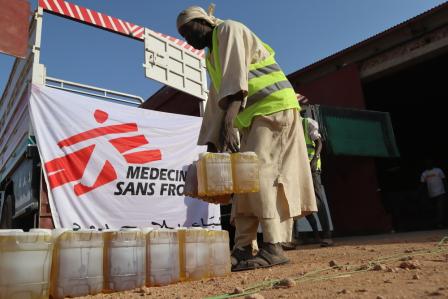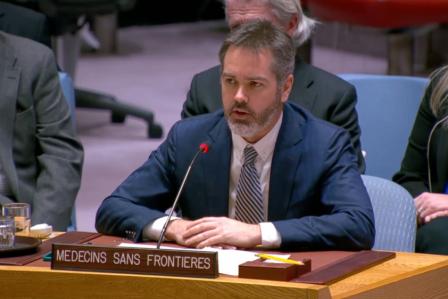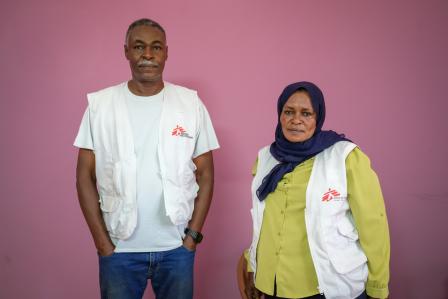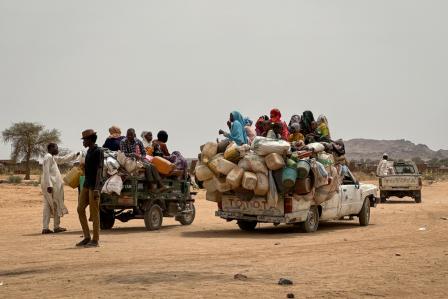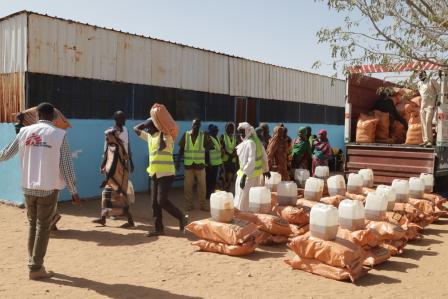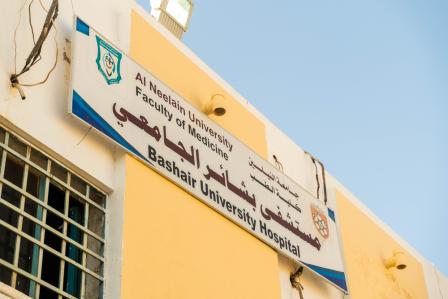Sudan: Compounding crises after two years of war leave millions more in need than ever
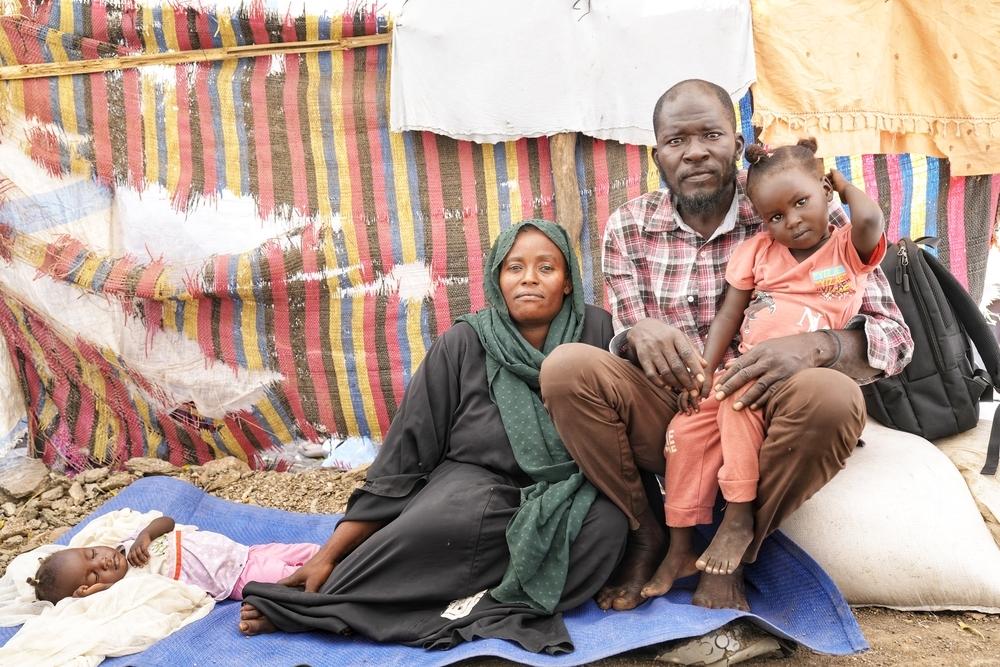
A displaced Sudanese family took refuge in a displacement camp. Sudan, November 2024. © Faiz Abubakr
The war in Sudan between the Rapid Support Forces (RSF) and the Sudanese Armed Forces (SAF) enters its third year and people remain unseen, bombed, besieged, displaced and deprived of food, medical care and basic lifesaving services. Sixty percent of the country’s 50 million people need humanitarian assistance, according to the UN, and people are facing simultaneous health crises and limited access to public health care.
Doctors Without Borders/Médecins Sans Frontières reiterates its calls on the warring parties and their allies to ensure that civilians, humanitarian personnel, and medical teams are protected and that all restrictions are removed on the movements of humanitarian supplies and staff, especially as the rainy season fast approaches.
“The warring parties are not only failing to protect civilians — they are actively compounding their suffering,” said Claire San Filippo, Doctors Without Borders Emergency Coordinator.
Wherever you look in Sudan, you will find needs — overwhelming, urgent, and unmet. Millions are receiving almost no humanitarian assistance, medical facilities and staff remain under attack, and the global humanitarian system is failing to deliver even a fraction of what’s required.Claire San Filippo,Emergency Coordinator
Will you support our emergency response work?
Help us provide lifesaving medical care during emergencies by making a donation today.
As frontlines have shifted over the course of the war, especially in Khartoum and Darfur, civilians feared retaliatory attacks from both warring parties. For the past two years, both RSF and SAF have repeatedly and indiscriminately bombed densely populated areas. The RSF and allied militias have unleashed a campaign of brutality, including systematic sexual violence, abductions, mass killings, looting of aid, erasure of civilian neighbourhoods, and occupation of medical facilities. Both sides have laid siege to towns, destroyed vital infrastructure, and blocked humanitarian aid.
Widespread starvation is taking hold, according to the UN, — Sudan is currently the only place in the world where famine has been officially declared in multiple locations. Famine was first declared in Zamzam camp, for internally displaced people, in August and has since spread to ten more areas. Seventeen additional regions are now on the brink. Without immediate intervention, hundreds of thousands of lives are at risk.
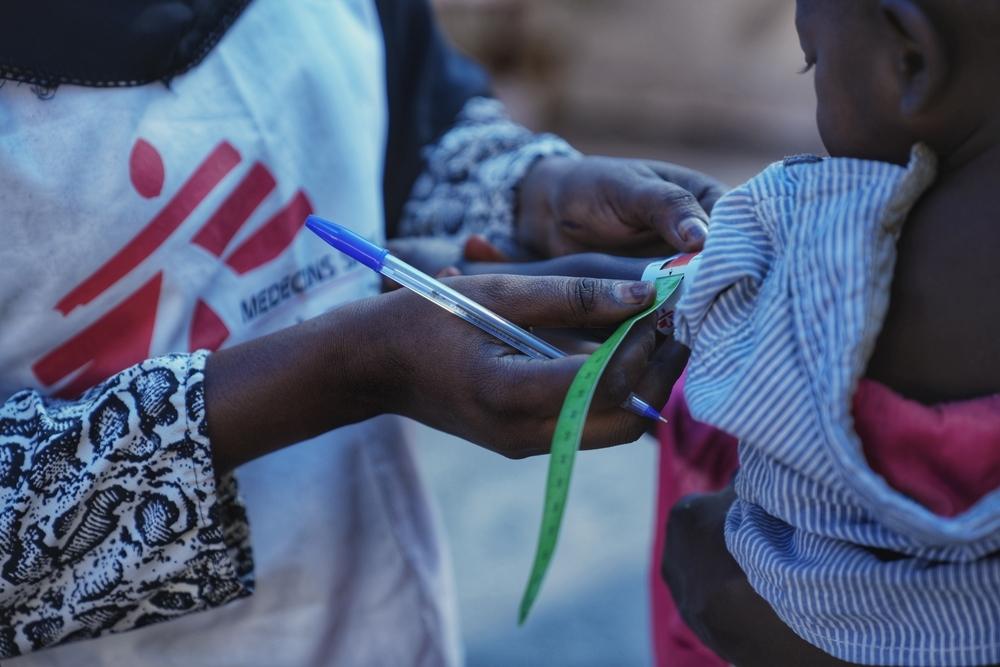
A staff member screens for malnutrition during mobile clinics in the Al Tadamon gathering site, Al Gedaref State. Sudan, November 2024. © Faiz Abubakr
In March Doctors Without Borders supported multi-antigen catch up vaccination campaigns for children under two in South Darfur. The over 17,000 children, in 11 of the 14 localities, who received vaccinations were also screened for malnutrition showing 7% of those screened were suffering from severe acute malnutrition, with 30% with global acute malnutrition. In December 2024, during a therapeutic food distribution in Tawila locality, North Darfur, Doctors Without Borders teams screened over 9,500 children under five years old. They found a staggering 35.5% global acute malnutrition rate, with 7% of the children suffering from severe acute malnutrition.
Simultaneously, Sudan is facing multiple, overlapping health emergencies. Doctors Without Borders teams have treated over 12,000 patients — including women and children — for trauma injuries directly resulting from violent attacks. During the first week of February 2025, Doctors Without Borders teams in three areas of Sudan - Khartoum, North Darfur, and South Darfur states - treated mass influxes of war-wounded patients. Sudan is also experiencing one of the worst maternal and child health crises we are seeing anywhere in the world. In October 2024, in two Doctors Without Borders-supported facilities in Nyala, capital of South Darfur, 26% of the pregnant and breastfeeding women seeking care were acutely malnourished.
Outbreaks of measles, cholera and diphtheria are spreading, driven by poor living conditions and disrupted vaccination campaigns. Mental health support and care for survivors of sexual violence remain painfully limited. These compounding crises reflect not just the brutality of the conflict, but the dire consequences of the crumbling public healthcare system and a failing humanitarian response.Marta Cazorla, Emergency Coordinator
Since April 2023, more than 1.7 million people have sought medical consultations at hospitals, health facilities and mobile clinics Doctors Without Borders supports or is working in, and more than 320,000 people were admitted in our emergency wards.
More than 13 million people have been displaced by the conflict, according to the UN — many of them multiple times. Of these, 8.9 million remain displaced inside Sudan, while 3.9 million have crossed into neighbouring countries. Many live in overcrowded camps or makeshift shelters, without access to food, water, healthcare, or a sense of future. People depend entirely on humanitarian organizations — but only where these organisations are responding.
Health facilities destroyed
According to the World Health Organization (WHO), more than 70 percent of health facilities in conflict-affected areas are barely operational or completely closed, leaving millions without access to critical care amid one of the worst humanitarian crises in recent history. Since the war began, Doctors Without Borders has recorded over 80 violent incidents targeting our staff, infrastructure, vehicles and supplies. Clinics have been looted and destroyed, medicines stolen, and healthcare workers assaulted, threatened or killed.
“Buildings were destroyed, even beds were looted, and medicines were burned to the ground. From afar, it looked like a hospital, but when you entered it, it was a shelter for snakes and grass,” said Muhammad Yusuf Ishaq Abdullah, Doctors Without Borders Health Promotion Officer in Tawila, North Darfur, about the state of Tawila´s hospital after being attacked and looted in June 2023.
These attacks must stop — medical personnel and facilities are not targets.
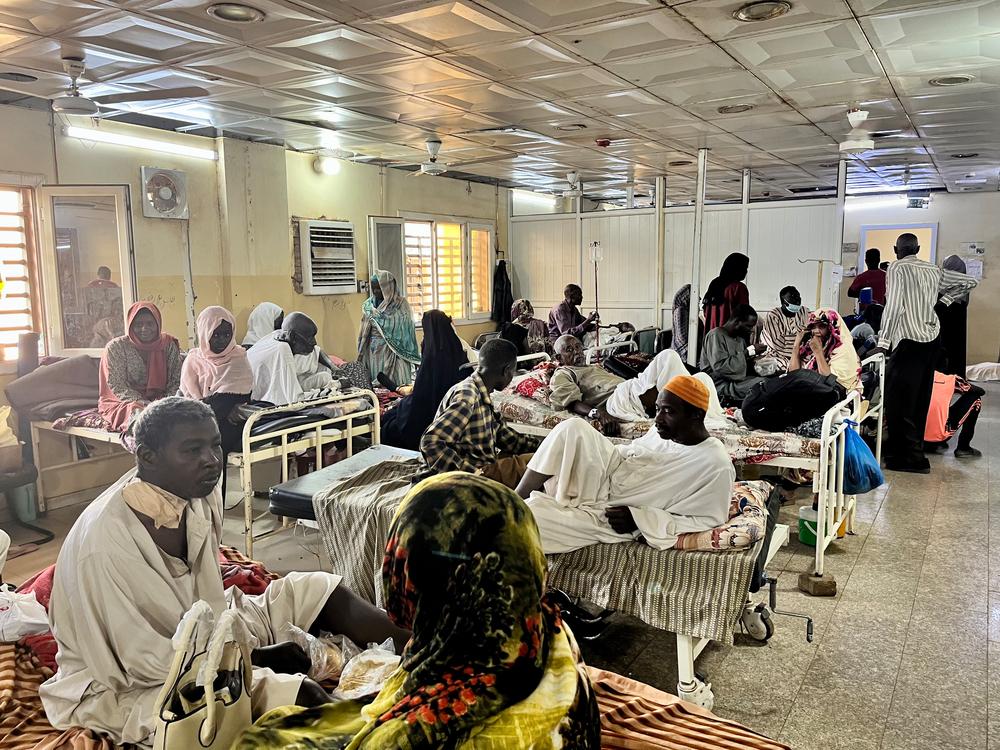
Emergency room at Al Nao hospital, supported by Doctors Without Borders in Omdurman, Khartoum state. Sudan, March 2025. © Tom Casey/MSF
Upcoming rainy season
The rainy season, fast approaching, threatens to make an already catastrophic situation even worse — severing supply routes, flooding entire regions, and cutting off people just as the hunger gap peaks and malnutrition and malaria spike.
Doctors Without Borders calls for immediate preparedness measures ahead of the rainy season. More border crossings must be opened, and key roads and bridges must be repaired and kept accessible, especially in Darfur, where seasonal flooding isolates communities year after year.
Humanitarian restrictions must be lifted, and unhindered access must be guaranteed. Doctors Without Borders urges all actors — including donors, governments, and UN agencies — to enable and prioritize the aid delivery, ensuring that assistance not only reaches the country but is transported swiftly and safely to the hardest-hit and most remote communities. Without a serious commitment to overcoming the political, financial, logistical and security barriers that hinder last-mile delivery, countless lives will remain beyond the reach of help.
The people of Sudan have endured this horror for two years too long, they cannot and should not wait any longer.
Support us
Help us provide lifesaving medical care during emergencies by making a donation today.
